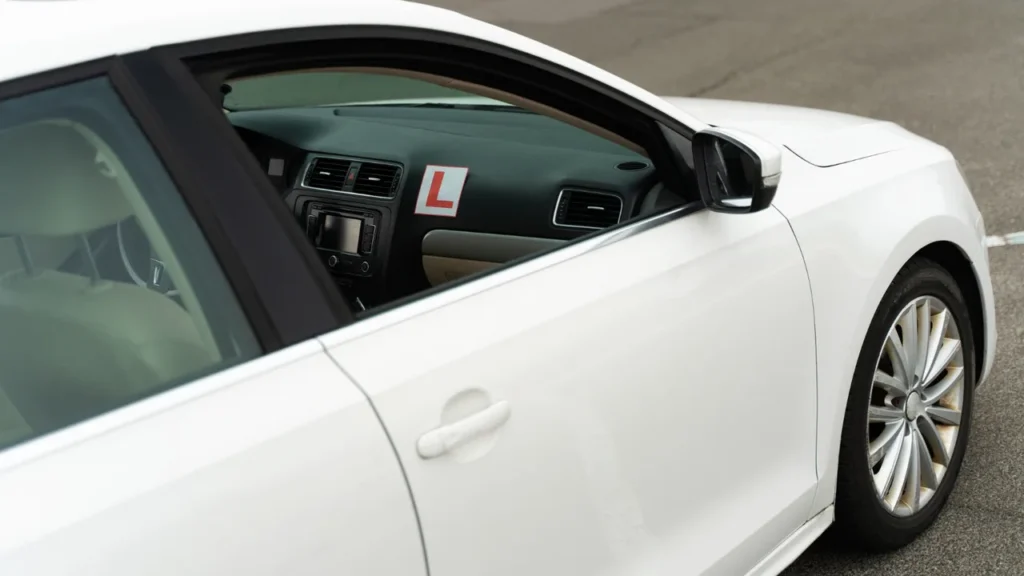Nissan has taken a bold step into the future by expanding its collaboration with Monolith, a London-based artificial intelligence company that empowers engineers through data-driven insights. Over the next three years, the two companies will continue to integrate AI in vehicle testing to revolutionize the way cars are designed, validated, and brought to market.
The strategic partnership supports RE:Nissan, the automaker’s global recovery plan that prioritizes faster production cycles, cleaner manufacturing, and innovation through collaboration. By reducing physical testing and optimizing design validation, Nissan aims to deliver new vehicle models to customers sooner—without compromising quality or safety.
From the Nissan LEAF to Future Electric Vehicles
The AI transformation began with the iconic Nissan LEAF, one of the world’s most popular electric vehicles built in Sunderland, UK. Monolith’s predictive models were first used to validate key physical tests on the LEAF, demonstrating that artificial intelligence could replicate real-world results with remarkable accuracy.
Following this success, Nissan’s European division is applying Monolith’s algorithms to a wider range of tests across its future vehicle lineup. Engineers at the Nissan Technical Centre Europe (NTCE) in Cranfield are now leveraging more than nine decades of accumulated testing data. The AI system analyzes this data to predict the outcomes of future trials—allowing teams to reduce reliance on physical prototypes and allocate more time to complex engineering challenges.
AI Enhances Accuracy and Sustainability
For decades, the automotive industry has relied heavily on physical prototypes for every iteration of design improvement. These processes consume massive resources, materials, and labor. By introducing AI-driven testing, Nissan is dramatically reducing waste and enhancing precision. Every simulation run by Monolith’s software minimizes the environmental footprint traditionally associated with large-scale prototype fabrication.
The integration of AI in vehicle testing aligns perfectly with the global shift toward sustainable manufacturing—a concept also embraced by industries using steel structure engineering to build eco-efficient factories and industrial facilities.
Data Intelligence that Cuts Testing Time
Monolith’s AI models enable engineers to process millions of data points from past experiments, identifying hidden correlations that the human eye might miss. This insight allows Nissan to run fewer but more targeted tests, saving time while enhancing reliability.
During earlier pilot projects, Monolith’s system analyzed bolt-joint performance across multiple chassis designs. It determined the optimal torque levels for joint tightening and prioritized additional tests to confirm the predicted results. The outcome was a remarkable 17 percent reduction in physical testing—a benchmark that Nissan now plans to scale across all European models.
Half the Testing Time, Twice the Precision
By using predictive analytics, Nissan can potentially cut its total development time by nearly half. Each AI-assisted test accelerates decision-making, reduces redundancy, and ensures every prototype built adds measurable value. For a global automaker competing in a rapidly changing market, these efficiencies translate directly into faster innovation cycles and stronger product reliability.
Empowering Engineers with AI-Driven Tools
According to Emma Deutsch, Director of Customer-Oriented Engineering and Test Operations at NTCE, “Integrating Monolith’s advanced AI software with our extensive database of testing results enables us to simulate and validate performance with extraordinary accuracy. These models—trained on decades of data—allow us to minimize physical prototypes and significantly shorten our development process.”
Deutsch emphasizes that AI does not replace human expertise; rather, it enhances it. Engineers still lead every critical decision, but now they can rely on machine learning to filter noise, predict anomalies, and focus on creative problem-solving. This synergy between human judgment and digital intelligence represents the next evolution of automotive R&D.
The Technology Behind the Transformation
Monolith’s software suite offers several key modules:
- Next Test Recommender – Analyzes previous outcomes to suggest which test should be performed next for maximum insight.
- Anomaly Detector – Identifies unexpected performance patterns before they cause costly design issues.
- Performance Predictor – Forecasts how design modifications will behave under different stress conditions.
Together, these tools give engineers the ability to make data-driven decisions that shorten testing cycles without sacrificing accuracy or safety.
Supporting a Smarter, Greener Industry
By reducing prototype waste, optimizing energy use, and eliminating unnecessary repetitions, AI in vehicle testing directly supports Nissan’s sustainability objectives. The approach reduces material consumption while improving product quality—making it a win-win for business and the environment.
In fact, such AI methodologies mirror efficiency strategies used across multiple industrial sectors, from renewable energy facilities to prefabricated steel construction. Whether designing a car or a building, the principle is the same: data-driven intelligence equals faster, cleaner, and more precise outcomes.
Expanding the Role of AI Across Future Vehicle Lines
Following the Nissan LEAF’s success, the automaker plans to expand AI-enabled testing to its next generation of electric and hybrid vehicles. By embedding AI in vehicle testing early in the design stage, engineers can quickly validate structural integrity, aerodynamics, and battery efficiency long before the first prototype hits the road.
This process not only accelerates time-to-market but also improves cost control. Each virtual test run through Monolith’s machine-learning models replaces hours of manual work and material fabrication. Nissan’s R&D leadership estimates that the cumulative impact of these efficiencies could save thousands of labor hours and millions in development costs annually.
AI and Human Expertise: A Collaborative Future
As artificial intelligence continues to evolve, its integration into automotive workflows highlights a critical balance between automation and creativity. For Nissan, AI is not about replacing engineers but enhancing their capabilities through augmented intelligence.
Dr. Richard Ahlfeld, CEO and Founder of Monolith, stated, “Our mission is to empower engineers with AI tools that enable smarter, faster product development. The success we’ve achieved with Nissan proves how machine learning can redefine the boundaries of automotive innovation.”
This philosophy ensures that human oversight remains central to every process, from conceptual design to final validation. Engineers interpret AI recommendations, adjust models, and refine algorithms to produce results that align with real-world performance expectations.
How AI in Vehicle Testing Strengthens Quality Control
Quality assurance remains one of the most time-consuming stages of vehicle development. By leveraging predictive modeling, Nissan can now identify potential performance issues far earlier in the cycle. This proactive approach minimizes late-stage surprises, allowing for smoother regulatory compliance and faster production approval.
In addition, Monolith’s AI systems continuously learn from new data, meaning each generation of tests becomes more accurate than the last. As Nissan’s vehicle range evolves, so does its AI’s ability to predict future performance under extreme conditions such as vibration, corrosion, and fatigue.
The Bigger Picture: AI Across the Automotive Value Chain
While testing is a major focus, Nissan’s application of artificial intelligence extends beyond the laboratory. The company is exploring AI in areas such as supply-chain management, production optimization, and predictive maintenance. Combined, these innovations form an integrated ecosystem where AI-driven engineering enhances every aspect of the value chain—from design conception to after-sales service.
For example, data collected from connected vehicles can feed back into Monolith’s learning models, closing the loop between real-world performance and future test simulations. This feedback loop ensures continuous improvement in vehicle durability, safety, and efficiency.
AI, Speed, and Sustainability: The New Trifecta
What makes Nissan’s approach unique is the convergence of three strategic goals—speed, sustainability, and precision. The use of AI in vehicle testing enables faster design validation, minimizes environmental impact, and improves structural accuracy simultaneously.
Each reduction in prototype production represents tangible carbon savings. Fewer materials are consumed, fewer logistics are required, and less waste is generated. Combined with cleaner energy sources and smarter factories, Nissan’s AI-driven transformation is setting a new benchmark for responsible innovation.
Industry Impact and Future Outlook
Nissan’s success with Monolith is expected to influence the broader automotive industry. Competitors and suppliers are closely monitoring how AI integration can shorten development cycles and enhance design precision. For startups and established manufacturers alike, the case demonstrates the practical value of merging AI analytics with engineering expertise.
As the technology matures, experts predict that within the next decade, physical prototype dependence could drop by as much as 60 percent across the sector. This shift would redefine traditional workflows, placing greater emphasis on digital twins, simulation accuracy, and real-time data synchronization.
Conclusion: Driving the Future with AI Intelligence
Through its extended collaboration with Monolith, Nissan has established itself as a leader in the digital transformation of automotive testing. The use of AI in vehicle testing not only accelerates innovation but also underscores a commitment to efficiency, precision, and sustainability.
As the industry moves toward a smarter, greener future, partnerships like Nissan × Monolith illustrate how artificial intelligence can transform the very DNA of engineering. Whether it’s predicting performance or reducing resource consumption, the message is clear—AI is no longer a futuristic concept; it’s the driving force of progress.



